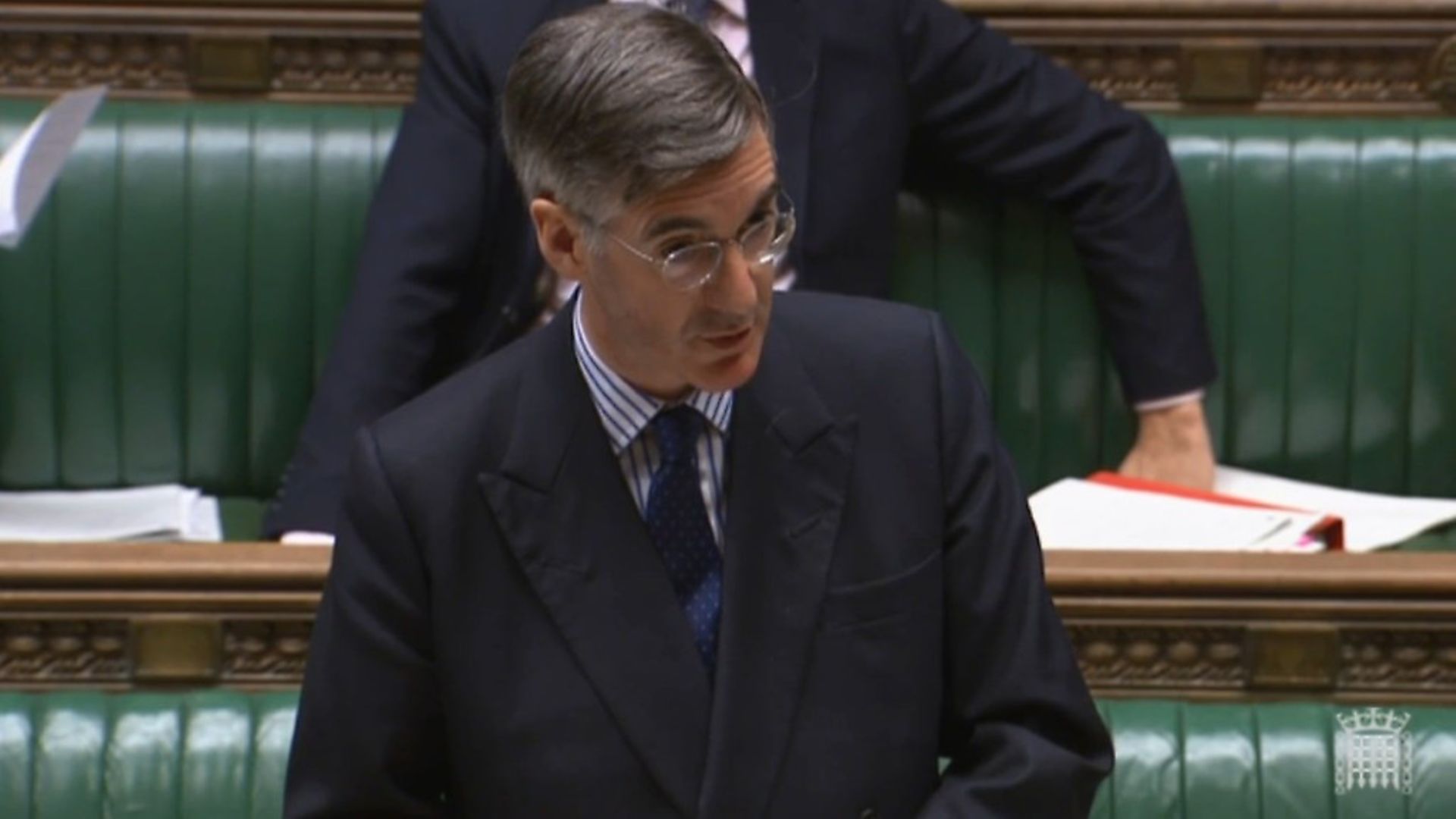
Government plans to make MPs vote in person during the coronavirus crisis have been branded as ‘beyond a farce’ amid concerns they will discriminate against shielding politicians.
Commons Leader Jacob Rees-Mogg will table a motion on Monday setting out the requirement preventing virtual voting from resuming.
On Tuesday MPs will stand two metres apart to form a kilometre-long queue for them to decide if they want to continue obey the social distancing rules.
The government’s motion requires the need for voting in person at the Palace of Westminster and that MPs must follow Public Health England guidance.
The mechanics of voting would then be left down to Commons Speaker Sir Lindsay Hoyle to set out, with MPs having to avoid the narrow division lobbies.
Have your say
Send your letters for publication to The New European by emailing letters@theneweuropean.co.uk and pick up an edition each Thursday for more comment and analysis. Find your nearest stockist here or subscribe to a print or digital edition for just £13. You can also join our readers' Facebook group to keep the discussion and debate going with thousands of fellow pro-Europeans.
He has described a single file of MPs snaking through parliament as a ‘supermarket queue’ that will lead through the centre of the chamber and to the dispatch box.
The Electoral Reform Society said: ‘If this goes ahead, it is beyond a farce. It is unacceptable when there is currently a safe, secure and speedy option for voting available: remote/digital voting. MPs have already used it, and it works.
‘Since some MPs are shielding and are not safe to travel in person, these plans – if confirmed – pose a real threat for democratic representation and political equality.’
Labour MP Chris Bryant tweeted: ‘The idea that we should queue to vote in a conga snake round the parliamentary estate like we’re waiting for Oblivion at Alton Towers is madness.
‘We will look like the stupidest parliament in the world so hidebound we can’t adapt.’
He added: ‘Parliament can’t just be survival of the fittest. It has to enable those who are shielding or caring for others to participate.’
Legal advice from Thompsons Solicitors commissioned by Labour said the plans to scrap the virtual parliament ‘would be likely to amount to discrimination’ under equality laws if MPs were considered to be employees.
Ellie Reeves, Labour’s shadow solicitor general, said: ‘These proposals are not only a risk to public health, but they also discriminate against MPs who are having to shield from the coronavirus and cannot safely return to work as usual.’
Senior Tories including Robert Halfon, the chair of the Commons education committee, who is currently shielding, have called for virtual proceedings to continue for those who need them.
Rees-Mogg defended the plan in The House magazine, saying that the total numbers on the estate ‘will not increase significantly’, with MPs’ staff continuing to work from home.
‘The virtual parliament brought us through the peak of the pandemic but it is no longer necessary to make the compromises it demanded. We can do so much better,’ he wrote.
‘In the chamber frontbenchers will have to keep on their toes as interventions are once again made possible. This exceptional aspect of British democracy, curtailed under the hybrid halfway house, can once again flourish.
‘For those MPs with underlying health conditions who have been told to shield or are receiving specific government advice about their health, the government is working with the House authorities to see how they can continue to contribute to proceedings within the House.’
The prime minister’s official spokesman added that MPs who need to shield ‘should continue to do so’ and said that informal arrangements such as pairing would be in place to allow this.
The House of Lords is developing a new online voting system for peers expected to be ready by the middle of the month as the government demands that MPs vote in person despite the coronavirus crisis.
‘We’re developing rapidly a brand new, secure online voting system for the House of Lords,’ a Lords spokesman said. ‘Peers will be able to vote at the touch of a smartphone screen or on a laptop or other device.’









